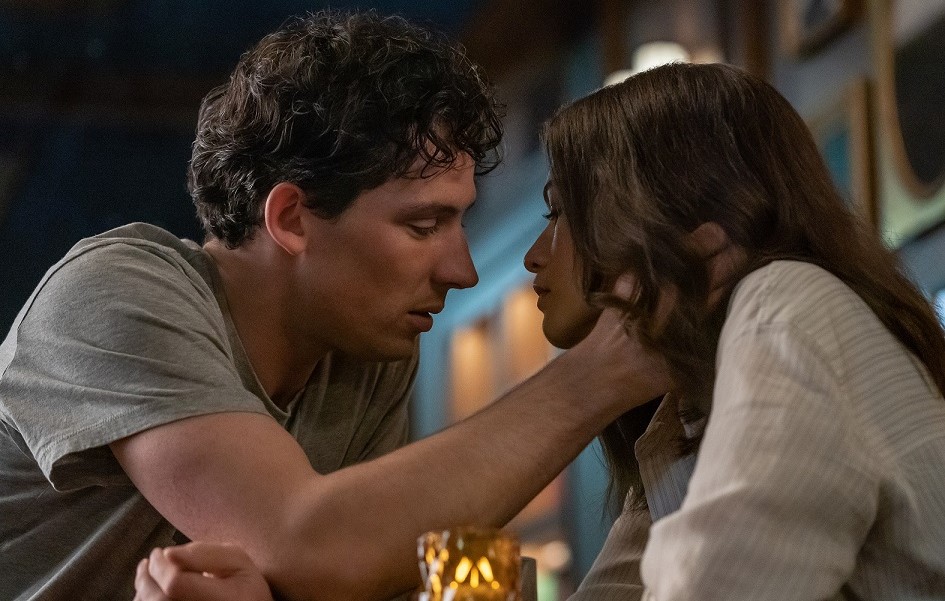
Running Time: 131 minutes
This feature from Amazon MGM Studios will open exclusively in theaters on Friday, April 26th.
Sports movies are very common, but while some might think that a romance set in the world of athletes might be more unusual, there have been numerous titles mixing these elements. Films like Bull Durham, The Cutting Edge, Tin Cup, Fever Pitch (both the UK and US versions) and Wimbledon are only a few of the dozens of pictures in recent years. The new film Challengers also falls into this category, but is an extremely eccentric take on the subgenre. In fact, this tale of love set around the professional tennis circuit often feels so overdone that it almost veers into pure parody.

The story cuts between various time periods, showing the struggles of three individuals who began their careers at the same time. Patrick Zweig (Josh O’Connor) is a player with raw talent and charisma who never reached his full potential. Zweig’s schoolmate Art Donaldson (Mike Faist) is a pro who has enjoyed success as one of the world’s best players, but is currently on a lengthy losing streak. When Donaldson’s wife and coach Tashi Duncan (Zendaya) suggests her spouse play a smaller tournament against less-experienced competition to regain his confidence, he agrees. Unfortunately, neither expect to encounter Zweig on the court. As their personal history together is revealed, it becomes clear that all have been playing emotionally manipulative games on and off the court and are bringing plenty of baggage with them.

The filmmaker doesn’t go out of his way to make the flawed, obsessed characters likable or relatable. Admittedly, it’s amusing early on to watch Zweig try to charm his way through some difficult spots with no cash or support to compete. However, more emphasis ends up being placed on the interpersonal dynamics between the three leads. Zweig and Donaldson are equally consumed by Duncan and playing their own match to win her from each other. Duncan seems aware of this and, at certain points in the story, even plays them against each other. It results in some unique conflict as each figure goes to extreme lengths to try and win over Duncan, even when their relationship seems (at certain points) to be less-than-healthy. Witnessing just how far each will go to outdo each other and win does add a level of grim amusement to the proceedings.

But the film’s eventual emphasis is more on sex than sport. In fact, it is almost campy in the way that it deals with the love story. Some of the revelations about the characters are far-fetched. Later, when two of the leads get together physically after a long absence, they do so outside while high winds blow around them (which seems like a really poor idea given the debris flying around). During tennis matches, there are dozens of slow-motion shots of the players running across the court, dripping sweat and flexing their muscles. Essentially, the film implies that watching a hard-fought battle on the court can be, well, more than just a little arousing (at least, it is for one viewer). While this is all amusing to watch, it’s so aggrandized that any authentic drama or tension is lost.
Another distraction comes when the film interrupts conversations between the leads with its score. A thumping beat builds during a couple of instances, so much so that it ultimately drowns out the dialogue. It’s an odd technique and has perhaps been used to create a sense of excitement between those involved in the discussions. Unfortunately, the approach takes the viewer completely out of the story and distracts considerably.

In the end, this tennis picture has some entertaining observations about players and the troubles they face over their careers. It is also likely having some fun with genre tropes by playing them out in the most inflated manner possible. But the lack of subtlety, the odd experiments and behavior of the main characters struggle to engage in a significant manner. Every now and then Challengers scores points, but there are also several wild shots that result in a fault.


